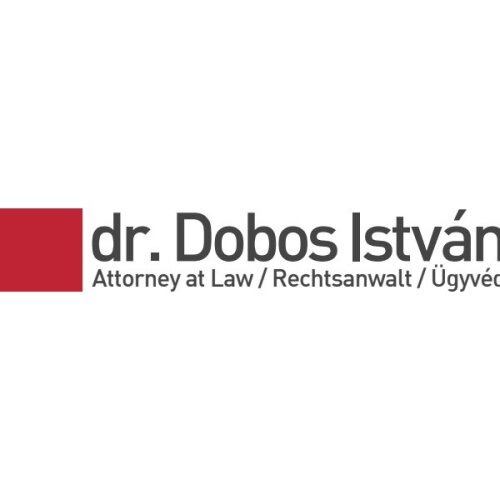Best Mining Law Lawyers in Hungary
Share your needs with us, get contacted by law firms.
Free. Takes 2 min.
Or refine your search by selecting a city:
List of the best lawyers in Hungary
About Mining Law in Hungary
Mining Law in Hungary governs the exploration, extraction, and utilization of mineral resources within the country. The sector is mainly regulated by the Mining Act of 1993, which has subsequently been updated to align with European Union standards. The law defines the legal relationships between resource owners, mining operators, and the state, addressing issues such as licensing, environmental protection, land use, safety standards, taxation, and compensation for affected parties. Oversight is primarily managed by governmental authorities, ensuring that mining activities are conducted responsibly and that Hungary's natural resources are conserved for future generations.
Why You May Need a Lawyer
Mining projects in Hungary are complex, involving numerous legal, environmental, and fiscal regulations. Whether you are a foreign investor, a local entrepreneur, or a landowner, legal assistance may be critical in scenarios such as:
- Acquiring mining permits and licenses
- Negotiating land use agreements or resolving landowner disputes
- Ensuring compliance with environmental regulations
- Managing contractual relationships with suppliers or partners
- Handling regulatory inspections and sanctions
- Acquiring or transferring mining rights
- Addressing compensation and indemnity claims for damages
- Resolving disputes with authorities or other stakeholders
- Managing taxation and royalty payment issues
- Responding to changes in legislation or government policy
In these and similar situations, a lawyer specializing in mining law can offer guidance, protect your interests, and help you navigate the often complicated regulatory landscape.
Local Laws Overview
Key aspects of mining law in Hungary include:
- Ownership of Minerals: Minerals located underground are generally considered state property. The state may grant exploitation rights to individuals or companies via licenses or concessions.
- Licensing and Permits: Mining activities require specific licenses, including exploration permits and extraction permits, which are granted by competent authorities after a rigorous assessment of technical, safety, and environmental considerations.
- Land Use: Mining may only proceed on land properly designated for such activities, which often involves negotiation with private landowners and compliance with local planning regulations.
- Environmental Protection: Projects are subject to environmental impact assessments and must adhere to strict mitigation and restoration requirements.
- Health and Safety: Operators must comply with health and safety standards set by national and EU regulations to safeguard workers and local communities.
- Royalty and Taxation: The law imposes mining royalties and taxes on operators, calculated based on the volume or value of extracted minerals.
- Closure and Rehabilitation: After mining activities, companies are responsible for rehabilitating land and preventing long-term environmental harm.
The relevant authorities regularly monitor and enforce these laws, and penalties for non-compliance can be significant.
Frequently Asked Questions
What types of minerals are subject to the Mining Act in Hungary?
The Mining Act covers most minerals found underground, such as coal, oil, natural gas, ores, and other industrial minerals. Exceptions exist for a few surface materials and privately owned stones used for non-commercial purposes.
Can foreign investors obtain mining rights in Hungary?
Yes, foreign individuals and companies can acquire exploration and mining rights, subject to fulfilling legal requirements, security considerations, and local licensing procedures.
How are mining licenses obtained?
Licenses are granted through an application to the relevant authority. The process usually involves technical and environmental assessments and may include public hearings. The required documentation and steps depend on the scale and type of mining activity.
What environmental obligations do mining companies have?
Mining operators must conduct environmental impact assessments, minimize environmental damage during operations, and restore sites after closure. Continuous monitoring and periodic reporting are mandatory components of compliance.
Are landowners compensated when mining occurs on their property?
Yes, landowners are entitled to compensation for disruptions and damages. The amount and terms are usually negotiated between the parties or determined by law if agreement is not reached.
How are disputes in mining law resolved?
Most disputes can be settled through negotiation, but administrative or civil court proceedings may be necessary for more complex or contentious matters. Arbitration is also an option in certain cases.
What taxes and royalties apply to mining activities?
Mining companies must pay royalties based on extracted mineral quantities or values, as well as corporate income tax and other local levies. Calculations and rates are specified in the Mining Act and related financial regulations.
Is public participation required in the licensing process?
Yes, significant mining projects require public notification and, in some cases, public consultations or hearings, particularly during environmental assessment phases.
How long does a mining license typically last?
Validity periods depend on the project scope, mineral type, and license category. Exploration licenses are usually granted for several years, with possible extensions, while exploitation licenses may last decades, subject to renewal conditions.
What happens if a company does not follow mining regulations?
Non-compliance can result in fines, suspension or revocation of licenses, and potential legal action for environmental or safety violations.
Additional Resources
If you need further information or assistance, consider reaching out to the following:
- Hungarian Mining and Geological Service (MBFSZ): The main regulatory body for mining, responsible for licensing, oversight, and geological surveys.
- Ministry of Energy: Supervises energy and mining policy, including legislative updates and strategic planning.
- Hungarian Chamber of Mining and Geology: Represents industry professionals and provides sector-specific guidance.
- Local environmental agencies: For support related to environmental permitting and assessments.
- Professional legal organizations: To find qualified lawyers specializing in mining and natural resource law.
Next Steps
If you believe you require legal assistance in mining law, consider the following course of action:
- Identify your specific issue or legal challenge, such as licensing, land disputes, compliance, or taxation.
- Gather relevant documents, including any correspondence with authorities, property records, or contracts.
- Contact a lawyer experienced in Hungarian mining law to discuss your situation and receive an initial assessment.
- Prepare questions in advance to maximize your consultation and clarify your objectives and expectations.
- Request guidance on deadlines, procedural steps, and potential outcomes.
- Stay informed about your rights and obligations throughout your engagement with regulatory authorities or business partners.
Securing professional legal advice early can help you avoid costly mistakes, safeguard your interests, and facilitate a successful mining project in Hungary.
Lawzana helps you find the best lawyers and law firms in Hungary through a curated and pre-screened list of qualified legal professionals. Our platform offers rankings and detailed profiles of attorneys and law firms, allowing you to compare based on practice areas, including Mining Law, experience, and client feedback.
Each profile includes a description of the firm's areas of practice, client reviews, team members and partners, year of establishment, spoken languages, office locations, contact information, social media presence, and any published articles or resources. Most firms on our platform speak English and are experienced in both local and international legal matters.
Get a quote from top-rated law firms in Hungary — quickly, securely, and without unnecessary hassle.
Disclaimer:
The information provided on this page is for general informational purposes only and does not constitute legal advice. While we strive to ensure the accuracy and relevance of the content, legal information may change over time, and interpretations of the law can vary. You should always consult with a qualified legal professional for advice specific to your situation.
We disclaim all liability for actions taken or not taken based on the content of this page. If you believe any information is incorrect or outdated, please contact us, and we will review and update it where appropriate.
Browse mining law law firms by city in Hungary
Refine your search by selecting a city.

















